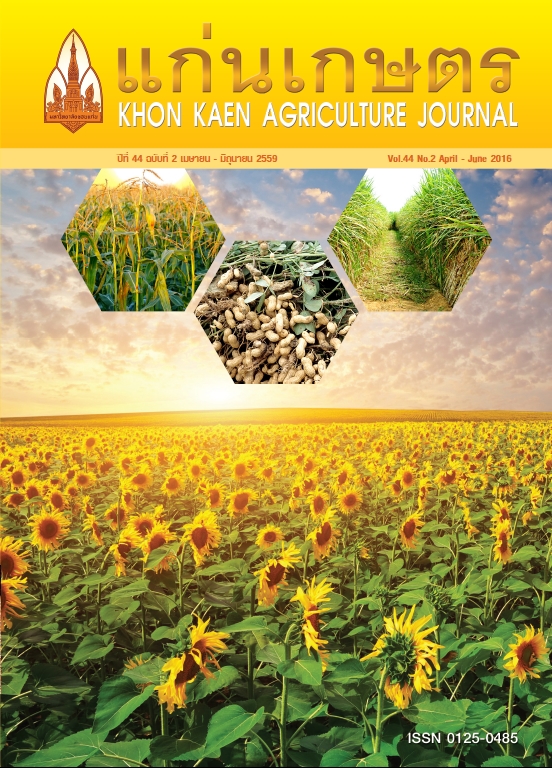Organic food market trend and consumers’ profile in Phnom Penh city, Cambodia
Main Article Content
บทคัดย่อ
Organic agriculture has received attention in recent decade on account of its biological feature, so agricultural institutions have been formed and developed enormously in organic filed at the present time in Cambo-dia. This research was to identify organic food market trend and organic consumers’ profile which was conducted in Phnom Penh City in this regard is the best place where sold organic product majority in Cambodia. Data was collected from supermarkets by structure questionnaire within 456 respondents. Descriptive statistics and Chi-square test were employed to quantify correlation. It was found that organic product in Cambodia is limited and narrowed. However, there is a positive signal for organic market in Cambodia. The study shows that the consumers could be divided in three categories including organic consumers (regular and occasional consumers), non-organic consumers, and never-heard organic consumers. Gender, marital status, education, occupation and income were found relatively statically significant related with consumer behavior. It can be implied that organic consumers mostly are the middle age men who have higher education, married with kid, secure job, and better income are more propensity interested in buying organic food. The main reason to purchase was about the health for the mand for their lovers meanwhile the key reason stood behind consumers not to buy was extremely about the lack of information of organic product. In this context, this relevant information would provide a good point to contribute significant effective to either marketers or other related parties to target potential consumers and raise organic sector.
Article Details
เอกสารอ้างอิง
Cheattho, P. 2010. Country Report: Organic Agriculture in Cambodia. Available: http://goo.gl/2HzhAP. Accessed Apr. 4, 2015.
Country Report of Organic in Cambodia. 2014. Available: https://goo.gl/CcOLzv. Accessed Oct. 15, 2014.
FiBL and IFOAM. 2014. The World of Organic Agriculture Statistics and Emerging Trends 2014. Available: http://goo.gl/Al0lue. Accessed Aug. 29, 2014.
Makarady, K. 2007. Country report on organic agriculture in Cambodia. Paper presented at the Regional Conference on Organic Agriculture in Asia, Bangkok, Thailand.
Pomsanam, P., K. Napompech, and S. Suwanmaneepong. 2014. Factors Driving Thai Consumers’ Intention to Purchase Organic Foods. Asian Journal of Scientific Research. 7(4): 434-446. Savoeun, L. 2008. The feasibility study on the development of organic vegetable farming in Saang District, Kandal Province. Master Thesis. Royal University of Agriculture, Phnom Penh.
Srer Khmer. 2011. About Srer Khmer. Available: http://goo.gl/bAqjB7. Accessed Oct. 21, 2104.
The Cambodian Center for Study and Development in Agriculture [CEDAC]. (n.d). About CEDAC. Available: http://goo.gl/QC7G8X. Accessed Sep. 30, 2014.
Veata, M. 2013. Comparision of organic and conventional rice production in Srae Cheang commune, Chumkiry Distrist, Kampot Province. Master Thesis. Royal University of Agriculture, Phnom Penh.
Yu, B., and X. Diao. 2011. Cambodia’s Agricultural Strategy: Future Development options for the rice sector. Cambodia Development Resource Institute. T&S Printing, Phnom Penh.


